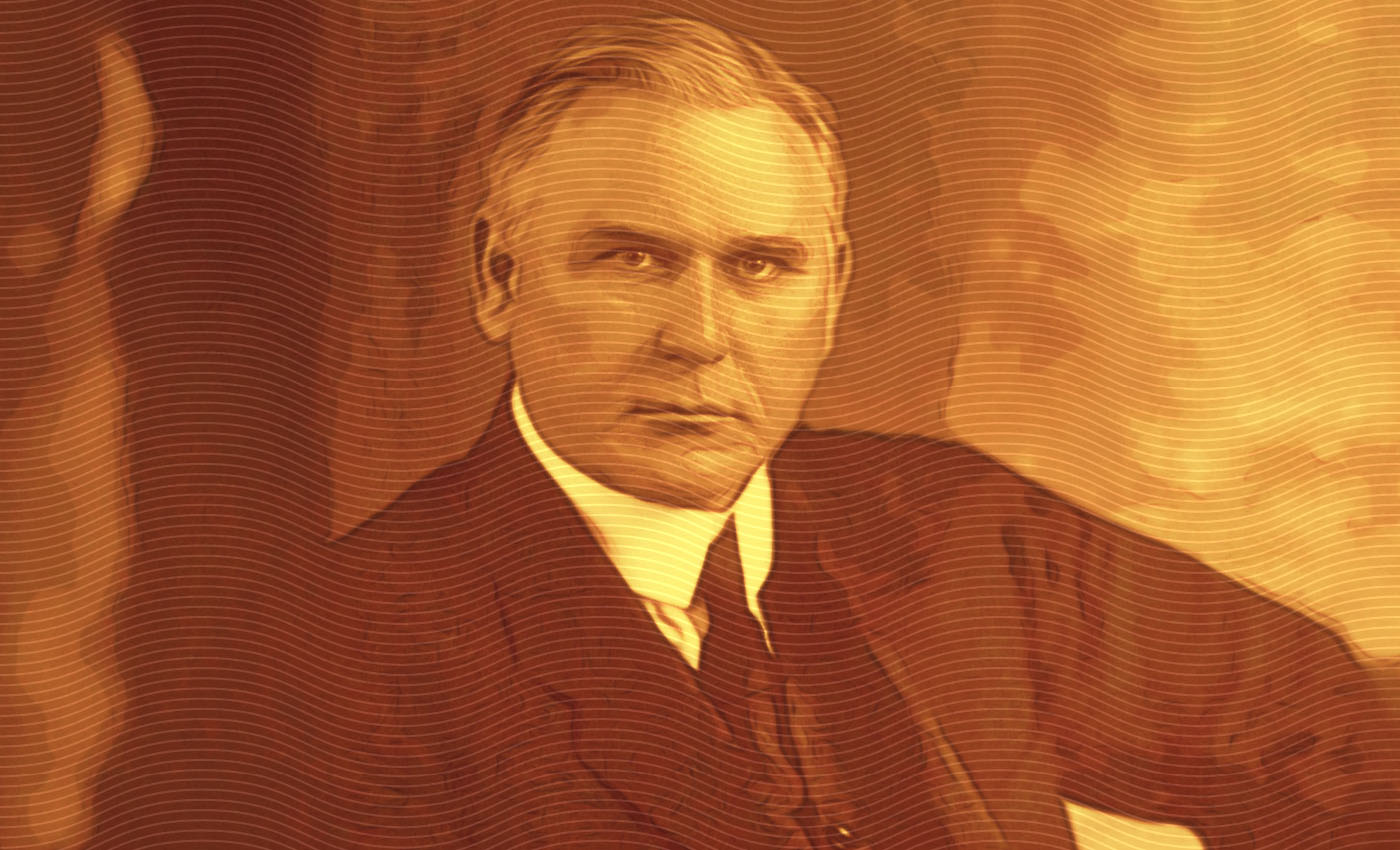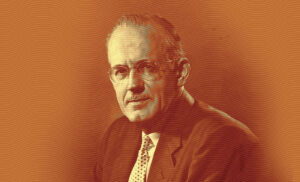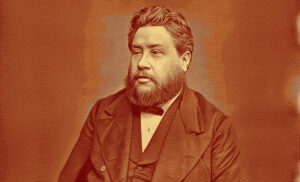I learned about this pastor in a Spiritual Awakening class in seminary taught by Dr. Roy Fish. I was surprised to learn that he was one of the choices of the leaders in spiritual awakenings we were allowed to write a paper about. I originally struggled with having to write a paper about him not realizing how effective he was evangelistically both in his personal and pulpit evangelism. What made him a great pastor was more of the struggles he endured and his resiliency in ministry after a tragedy that impacted him personally, the church and the city where he resided. He like Jesus, as Hebrews 5:8 says, “learned obedience from the things which he suffered.”
George Washington Truett entered the world on May 6, 1867, in a farmhouse in Hayesville, North Carolina, as the seventh child of Charles and Mary Truett. Charles became a Christian and was baptized at the age of 45 even though George had a grandfather and great-uncle who were preachers. George had a deaf brother. To be able to communicate with him, George formed his words carefully so that his brother could learn to read lips, leading him to have an incredible enunciation in his speaking and preaching.
His dad’s baptism greatly touched young George. George would go on to graduate from Hayesville Academy, the equivalent of a high school graduation in 1885. This qualified him to teach school yet in 1886, the most significant and life altering event was him becoming a Christian. He said he could “draw back” no longer from such a public commitment and confession.
Young George taught school in Towns County, Georgia and then in 1887, he founded the Hiawassee Academy in that same county, with the goal of making enough money from private students to pay for law school. However, two years later, he left his position at the academy to move with his parents to Whitewright, Texas. There he joined the Whitewright Baptist Church and attended Grayson Junior College.
He became a “lay preacher” at that Baptist church in Whitewright and it was in this church that he was ordained to be a pastor in the most unique way in 1890. After Truett preached, the church went into a normal business meeting but what was abnormal was that Truett was a part of the church’s business meeting agenda.
On that Saturday afternoon, a senior deacon rose to speak. He spoke of the solemn duty the church must do. Then, he made a motion that the church ordain George Truett to the ministry. The motion was quickly seconded. The only one who objected to this motion was Truett himself, telling them that he was going to be a lawyer. Their response, according to Truett’s biography by P. W. James, was to inform him, many speaking through tears, that if he did not recognize God’s call on his life, they did! After a sleepless night, Truett surrendered to the call. That morning, he was examined by ordained men and ordained during the morning worship service.
After being hired by Baylor through B.H. Carroll’s persuasion to help the university pay off a large debt, Truett enrolled in 1893, was called to pastor East Waco Baptist Church and met his future wife Josephine. After his graduation in 1897, he received two invitations; one to become the president of Baylor University, the second was a call to pastor First Baptist Church, Dallas, Texas.
When FBC, Dallas called Truett, he first declined. When the church insisted, he accepted. Biographer J. B. Cranfield wrote, “the decision was made on his knees.” Truett said, “I have sought and found the shepherd’s heart.” The church, deeply in debt, were paralyzed and unable to get unstuck and grow. Through Truett’s dynamic leadership and vision, the church grew rapidly and retired their debt. When Truett came, their membership numbered 715 but during his tenure as pastor, the membership grew to over seven thousand.
Truett was a very effective preacher and pastor, yet he was also very evangelistic as well, seeing many come to know Christ. He did have great heart for shepherding his people but it was not without tragedy. Truett was invited to go quail hunting by devoted church member, J.C. Arnold and met George W. Baines, a mutual friend and pastor of First Baptist, Cleburne.
As they prepared to return to Baines home, Dr. Truett shifted his hammerless shotgun to the other hand and it accidentally discharged into Arnold’s right leg. Though he was rushed to Dallas for treatment he died the next evening Feb. 5. When they found that it was a blood clot to his heart that caused his death, and ruled a heart attack, Truett could not be consoled and continued to pace the floor filled with self-condemnation telling his wife that he would never preach again.
Her attempts to console him were futile. That night his ministry was transformed and he reluctantly allowed the details to be told until after his death by his biographer and son-in-law, P. W. James. Truett had a vivid three-fold dream. He saw Jesus standing by his bedside and said, “Be not afraid. You are my man from now on.” He entered the pulpit the next Sunday with a drawn face and sad eyes, but things were different. What made Arnold’s death more notable was that he was the Dallas police chief at this time, yet through Truett’s brokenness, God empowered him. Truly the Apostle Paul’s experience in 2 Corinthians 12:9, 10, “My grace is sufficient for you, for power is perfected in weakness…for when I am weak then am I strong.”
What would have taken more pastors out and devastated them, Truett let God refine him in his preaching and pastoring. Truett’s dynamic preaching attracted thousands, and the church became a hub of spiritual revival in the city. He spearheaded several building campaigns, including the construction of a sanctuary in 1921, which could seat over 3,500 people—a testament to the church’s rapid expansion. He also influenced the creation of organizations like Buckner Orphanage and Baylor Medical Center. He also was a proponent of religious liberty and was president of the Baptist World Alliance.
Starting in 1902, Truett made an almost yearly visit to evangelize the cowboys of West Texas. Describing the characteristics of the Texan cowboy he said, “They are unspoiled; they are children of nature; they are artless, they are sincere as the sunlight; they are men of tremendous convictions; they face issues and decide them; they are empire builders.” Evangelizing such a crowd might intimidate some preachers, but not Truett; he always looked forward to his yearly visits.
Truett was deeply committed to the Great Commission, and he encouraged his church to be equally passionate about missions. Under his leadership, First Baptist Church Dallas became one of the largest supporters of Baptist missions in the United States and around the world. In 1925, he was influential among Southern Baptists to promote the Cooperative Program. In 1927, he was elected president of the SBC and that was when he really helped grow the Cooperative Program. The Cooperative Program is unique from any other denomination on how it unites autonomous churches to collectively support missions and seminaries.
Yet most remarkable was his compassionate heart. He never learned to drive so he would always rely on public transportation to get around Dallas and to go to and from his home. His wife Josephine couldn’t keep a coat for him because often, as we walked to First Baptist, he would willing give away his overcoat to a needy person on the street. His wife Josephine was so concerned about his generosity and benevolence that she reportedly had to put the deed of the house that they owned in her name so that he wouldn’t give it away for some cause.
When George W. Truett passed away in 1944, he left behind a church that had grown from a local congregation to a global force for the Gospel. His influence extended far beyond First Baptist Church Dallas. He was one of those pastors who loved the people he preached to and was able to be available for a greater work beyond his own church. He was pastor of First Baptist Church, Dallas for 47 years. He preached and pastored through trying times, both personally and nationally.
Yet, he remained true to the calling that a small Baptist church in Texas placed on his life. When Truett protested during that business meeting, he asked them to consider delaying the ordination for six months. The church refused, stating we “will not delay six hours, much less six months.”
On his gravestone, his epitaph reads, “Thy Will be Done.” George W. Truett surrendered his life to that call of doing God’s will. His pastoral inspiration and integrity calls today’s pastor to follow his example of “Thy will be Done.”
John Howeth is the Regional Director of Longs Peak Baptist Association.






